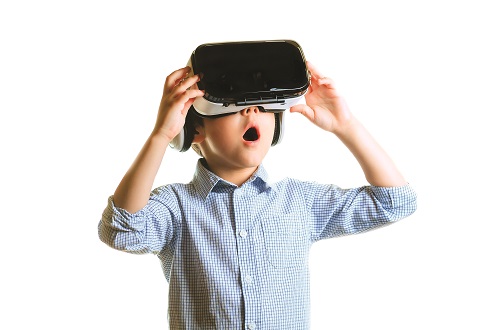The Future of Kids and Technology in Education and Careers - Training our kids for jobs that don’t yet exist
According to statistics, around 65% of jobs that kids will have in the future do not even exist yet. Whether the stats are true or not, if you compare what is available now to just a decade ago, you will see how possible it could be. Imagine telling someone ten years ago that you could make thousands through apps called Instagram and YouTube, or that you can fly drones for a living. It would blow people’s minds, yet it’s our current reality and brand-new roles are being created all the time.
So how can we assist education to prepare the next generation (and ourselves) for jobs that have not yet been created?
· Strengthen soft skills in our kids and teenagers. No matter what career or entrepreneurial path our kids take, they will always need soft skills like respect, manners, and emotional intelligence. No technology can replace them, so no matter what, qualities like these will never go out of date and will always be favored in any workplace.
· Let them play. Obviously not all screen time is a bad thing. If kids are playing the right games on the computer, they could be solving problems and learning crucial skills they could potentially use in the future. Apps and technology are used for everything from emergency services to entertainment, and without people on computers, none of this would exist. How do we know the ‘gamer kids’ won’t go on to develop their own game or app that millions use? Computer science is one valuable area of knowledge that could even be introduced to mainstream education.
· Encourage entrepreneurial skills. Entrepreneurs are getting younger and younger. It won’t be long before it’s normal to see pre-teen entrepreneurs. Technology is enabling this to happen faster, so encouraging young adults to strengthen skills like financial management, time management, communication, flexibility and resilience, will help take them far.
· Be open to new technology. Using and learning about the technologies our kids use will let us better understand how children are growing up in a different world to the one we grew up in. Things change even faster now; the bar is raised higher and higher and they will face over-stimulation that we didn’t have. Their brains will be developed in places that ours were not at their age, simply due to the overload of content that is available, and the volume of time spent using technology every day.
The Future of tech in kid's learning experiences
Education could be one of the most exciting areas where tech is taking over. In the not too distant future, kids will be making use of virtual reality in their lessons taking them from typical classroom lectures and turning it into a full 360 experience. Virtual reality can create entire digital worlds and bring textbooks alive. It could take kids back to historic times, take them to different countries and enable them to do complex or dangerous science experiments virtually. In fact, the possibilities are endless with VR in education.
Teaching is a heroic challenge, but technology could help take some of the pressure off teachers as students can immerse themselves more in the lessons and start learning in new ways. If kids are struggling, technology could also help identify and rectify this quicker using AI (artificial intelligence). AI will never be a replacement for teachers, but more like an assistant, giving them a class-wide performance, profiles on each student, interaction patterns, and keeping track of their learning progress digitally.
Mobile and home-based learning
Technology makes E-learning possible now, but in the future, it will become seamless and students will be able join in with either a real or virtual classroom as if they were actually there. This can also lead to self-directed learning studios that can be accessed at home with families for homework and studies. This could be anything from augmented reality and digital simulations to full on virtual worlds they can walk around and interact with.
This kind of learning will also help prepare kids for the jobs of the future as they can gain training for real-life situations, or job scenarios in a virtual setting first.
Of course, not everyone will have access to the technology that will be available, just like now there are many parts of the world still without internet, but one thing is for sure – mainstream education and careers will take radical changes over the next two decades, with technology at the forefront, yet human skills will always reign supreme.




